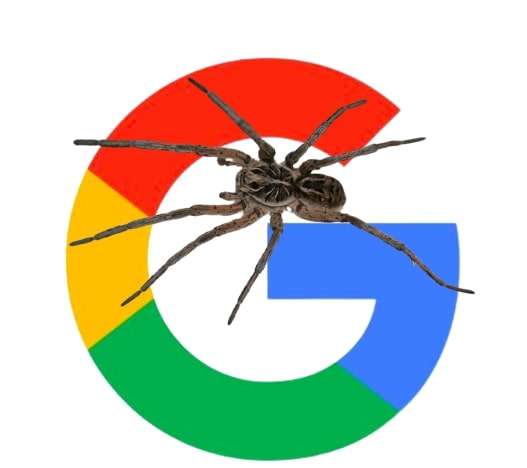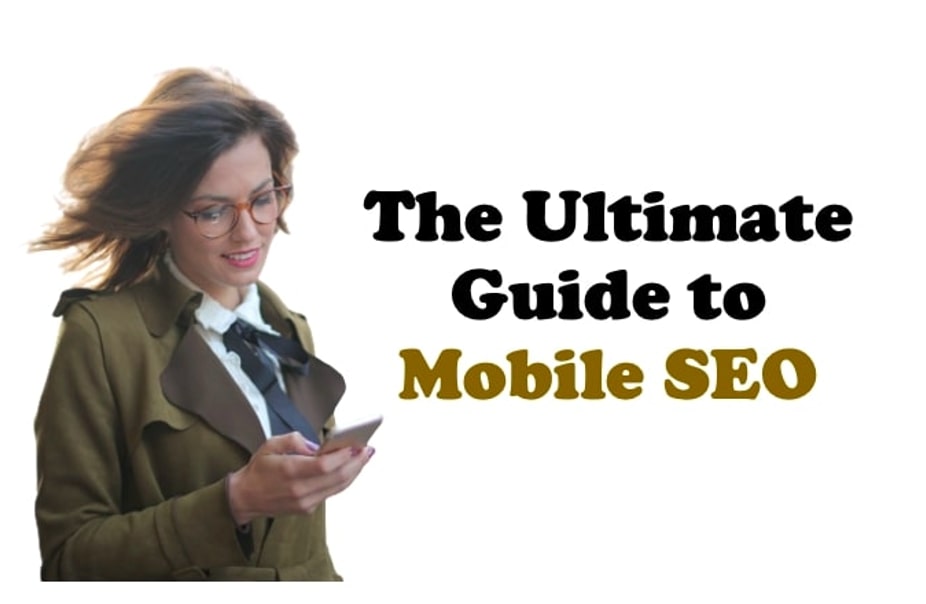SEO is an important part of the digital marketing mix. It helps you to rank higher in search results and drive more traffic to your site.
SEO aims to improve the visibility of a website or a web page in the search engine result pages (SERPs). Many factors affect how high a web page will rank in the Search Engine, including backlinks, content quality, and keyword placement.
Let us guide the basic concepts of SEO briefly:
Quick Links
Organic and Paid Search Results
Organic Traffic
It is a term used to describe the organic search engine result pages (SERPs) that your website receives when a user searches for something on Google, Baidu or Yahoo!, or other search engines.
Organic traffic is important for many reasons. For example, it allows users to find your website without paying for ads and helps you rank higher in search results.
Organic traffic can be achieved through various strategies, such as content marketing, social media marketing, and SEO.
Organic Search Engine Results: These are the organic search engine result pages you find when you type in a keyword or URL for your website without clicking any links or advertisements.
This means these result pages have been naturally found by other people who have searched for your website using their keywords, which means they’re not paid for with money.
Still, instead, they’re just looking for information on your site to help them decide what kind of product or service they want to buy.
Paid Search
Paid Search results are usually found on platforms like Google and Facebook, where advertisers can buy them. However, they come with a price tag and will likely not rank well in the natural search results.
Paid traffic is traffic from advertising campaigns, and organic traffic is traffic from organic search engine results. Therefore, it is usually more expensive than organic search engine results.
Paid search is an online advertising platform that allows you to target specific demographics through paid advertisements.
It also helps businesses find their customers. Companies spend a lot of money on paid searches, but the return can be worth it.
Paid search results are advertisements shown on the search engine results page that is paid for by advertisers. They can be found in various places, such as organic listings, featured snippets, and sponsored links.
Paid search is the most effective way to reach your target audience because it is cost-effective and allows you to reach your target audience wherever they are online unless the cost per click (CPC) is high.
For example, when you enter the keyword “Hosting Services for Websites,” two types of results appear below:

What is Search Engine
Search engines are software that use algorithms to find, organize and present the most relevant results for a given search query.
Search engines are used to find information on the internet. Different search engines have different algorithms and ways of organizing results, but they all provide users with an organized list of web pages in response to their queries.

Google is one of the most popular search engines in the world, with over 92% market share. It is also considered one of the most advanced and capable search engines.
How does a Search Engine Work
Search engines are becoming more and more important these days. They help us find what we are looking for and provide us with a wide variety of information.
Search engines work by crawling the web and indexing it. They then use algorithms to determine which websites rank highly in the search results. First, let us check how search engine work.
The first step in this process is the crawler, which goes out and finds all the content on a given website. It then analyzes that content, categorizes it, and stores it in an index.
Once the index is created, the search engine uses algorithms to determine what pages should be ranked highly in search results based on keywords or phrases searched for by people like you.
Google Search is a fully-automated search engine that uses software known as web crawlers that explore the web regularly to find pages to add to our index. In fact, the vast majority of pages listed in our results aren't manually submitted for inclusion, but are found and added automatically when our web crawlers explore the web.
Crawling: Google downloads text, images, and videos from pages it finds online with automated programs called crawlers.
Indexing: Google analyzes the text, images, and video files on the page, and stores the information in the Google index, which is a large database.
Serving search results: When a user searches on Google, Google returns information that’s relevant to the user’s query.
Crawlers, Googlebot, and Spiders

Googlebot is the generic name for Google's web crawler.
Googlebot is the general name for two different types of crawlers: a desktop crawler that simulates a user on desktop, and a mobile crawler that simulates a user on a mobile device Your website will probably be crawled by both Googlebot Desktop and Googlebot Smartphone.
You can identify the subtype of Googlebot by looking at the user agent string in the request.
Search engine crawlers (also known as spiders) are software programs that search the web by scanning the text and metadata of web pages in a particular domain for specific keywords, phrases, and other information related to the topic of interest. They then index these items for later retrieval by users through a search query.
Google is the most popular search engine that provides billions of daily search results. There are many ways of searching, including keywords, website, date, and time.
A Search Engine crawls through a website and indexes every page. It then lists all the content on the site and assigns each one a rank based on how relevant it is to what you are searching for.
Googlebot is the generic name for Google’s web crawler. Googlebot is the general name for two different types of crawlers: a desktop crawler that simulates a user on desktop, and a mobile crawler that simulates a user on a mobile device.
Search Engine Algorithms
Search engine algorithms are the rules that search engines use to rank webpages on their search engine results page.
Search engines have been around for a long time and have changed significantly over the years.
However, there are still some things that we don’t know about them. In addition, search engine algorithms are constantly changing, so keeping up with what is best for your website or blog can be hard.
What is SERP (Search Engine Result Page)
A SERP is a page on the search engine results page that shows up when you type in a keyword.
A SERP, or Search Engine Result Page, is the page that appears when you type in keywords. They are also referred to as search engine listings.
The top of the SERP will be your domain name, followed by links to other websites and their related content. Finally, the bottom of the SERP will contain more information about your website and its history on the SERPs.
In the above example, when we search for “Hosting Services,” the page appears above.
What is Search Engine Optimization
SEO - Search engine optimization: the process of making your site better for search engines.
On-Page SEO
On-Page SEO is a type of SEO that deals with the optimization of the HTML code and content on a website.
This includes meta tags, headings and subheadings, page titles, page descriptions, URLs, and other elements related to the website’s structure.
It is important because search engines index websites based on how well they are optimized for their search engine.
If a website isn’t optimized for the search engine, it is being submitted. Therefore, users won’t find it. On-Page SEO can be achieved by using keywords in appropriate places on your site.
Keywords should be used in headings, subheadings, and meta tags. And page titles.
Off-Page SEO
Off-page SEO is a method of ranking that is not focused on the website itself. Instead, it is all about optimizing your content to rank higher in search engines.
Off-page SEO includes things like:
- Social media promotion
- Blog Promotion
- Outreach to other websites and blogs that are related to your niche
- Email marketing and newsletters
- Link building
- Content Marketing
Off-page SEO is optimizing your website and content to rank high in search engines. This process includes several techniques, such as keyword research, social media marketing, public relations, and content marketing.
Black and White Hat SEO
SEO is a difficult field that requires a lot of knowledge and expertise. Therefore, understanding the difference between White Hat and Black Hat SEO is important.
White Hat SEO
White Hat SEO is a search engine optimization method that follows best practices and ethical guidelines set by search engines like Google, Bing, Yahoo!, etc.
Black Hat SEO
Black Hat SEO is a search engine optimization method that doesn’t follow ethical guidelines set by search engines like Google, Bing, Yahoo!, etc.
Scope of Search Engine Optimization
The search engine optimization scope includes many factors affecting your site’s ranking in SERPs. These include keyword research, on-page SEO elements, content marketing, social media marketing, link building, and more.
The scope of careers in search engine optimization is wide and diverse. It ranges from technical SEO to creative marketing.
While it is difficult to generalize about the scope of SEO, one can say that it has become an integral part of digital marketing. Most digital marketers and agencies use it to improve a website’s visibility on search engines like Google, Bing, and Yahoo.
The goal of SEO is to improve a website’s rankings by increasing its organic traffic. Some careers in SEO are technical, while others are creative.
Technical professionals include web developers, software engineers, developers, content strategists, and analytics professionals who work with data and algorithms to optimize websites for performance on search engines.
Creative professionals include copywriters who write content for websites and social media managers who use social media platforms like Facebook or Instagram to promote brands or products online.
In addition to technical and creative work, there are also marketing professionals who work in the field of search engine optimization.
Marketing professionals may be part of a company’s marketing team or an individual strategist responsible for the company’s digital marketing.
Digital marketers may be involved with services like social media advertising, website design, content creation, PPC campaigns, or email marketing campaigns. This job requires a high level of hand-eye coordination and can be physically demanding.
Website Audits and Reporting
A website audit should be conducted before you launch or re-launch your website to ensure you know what issues may exist and how they can be fixed.
This process is vital, as it allows you to identify the potential risks of launching your site while minimizing them.
- A professional familiar with your website’s services should conduct a website audit.
- Ensure that you have a person responsible for the website’s health and upkeep, as well as someone in charge of making necessary changes to ensure that it remains healthy throughout its lifespan.
- Conduct an audit of all content that is on your website.
- Conduct an audit of your website’s back end, including security settings and content management systems.
- If launching a responsive redesign, conduct an audit of the layout before migrating any content to the new site.
An SEO expert does a website audit to check the website for any potential problems. It helps in optimizing the website for search engines like Google and Bing.
Google uses over 200 ranking factors to determine where your website will rank on its search engine results pages. A website audit can help you identify and fix these problems, which can improve your rankings.
Some of the most common reasons why a website might be penalized by Google are:
- A 301 redirect is not set up properly
- The content is too thin
- Duplicate content on the same page
- Tracking Keywords positions
FAQs
SEO stands for search engine optimization. This term is used to describe the process of optimizing your website’s content and performance to increase its visibility (rank) in search engines.
This can be done by adding relevant keywords to your website or blog, writing user-friendly content, creating a mobile-friendly website, setting up a blog, and more.
There are thousands of benefits to having an optimized website. One of these is the potential to increase sales and increase traffic.
The more people that visit your site, the more likely it is that you will make sales or get a lot of page views. The increased traffic can also lead to more organic visits from search engines.
SEO is a competitive field, with thousands of people competing for the same spots. Investing in SEO will increase your chances of ranking and help your business succeed.
Preparing an effective SEO strategy can help you find success as well. A fresh approach to a good strategy can lead to higher rankings and savings on marketing costs.
Search engines, social media, and content marketing can all be incorporated into a successful SEO strategy. You can use these components to boost your content and reach new audiences.
SEO is a very costly investment. As a result, many companies have shifted their focus away from SEO and paid advertising campaigns.
Many factors affect the SEO cost, such as website type, location, competition level, etc.
The cost of SEO can also fluctuate depending on how long it will take for your website to rank in search engines.
SEO costs vary depending on your strategy and the time you invest in it. However, most SEO strategies will cost between $3000 to $10,000 per month.
Search Engine Optimization is improving the visibility of a website or an article on the search engine results page. Search Engine Optimization ensures that search engines have all the information they need to rank your site.
There are many ways to optimize your website. One of these is by using SEO copywriting. This involves writing content that helps search engines understand your site and how it can help people find what they’re looking for.
SEO copywriting improves the visibility of a website or an article on the search engine results page by ensuring that search engines have all the information they need to rank your site and provide relevant results for people searching for specific keywords or phrases.
Search Engine is a very effective tools for getting information. It has become a standard in most organizations to have an integrated search engine on their websites and apps.
Search engines like Google give you exact results using algorithms designed to look at your query and return the most relevant result. There is no better way to get accurate results than a search engine.
They can give you exact results because they process the data in a way that it can be understood by machines.
The search engine crawls the web and stores all its information in a database. It then uses algorithms to match your search query with similar queries and returns relevant results.
Search engine optimization is a multi-billion dollar industry. But is it legit?
A lot of people believe that search engine optimization is a scam. This sentiment is based on the fact that some companies have been caught manipulating search results to their advantage.
However, the simple answer to the legality of SEO is that it is real, legit, and genuine if we strictly follow Google guidelines.
There are many cases where companies have been found guilty of manipulating search engines to gain an unfair advantage over their competitors. However, these cases do not represent all SEO professionals and companies.
The truth is that when done properly, SEO can be very beneficial for your business and help you get more traffic and leads.
Sharing is Caring

























